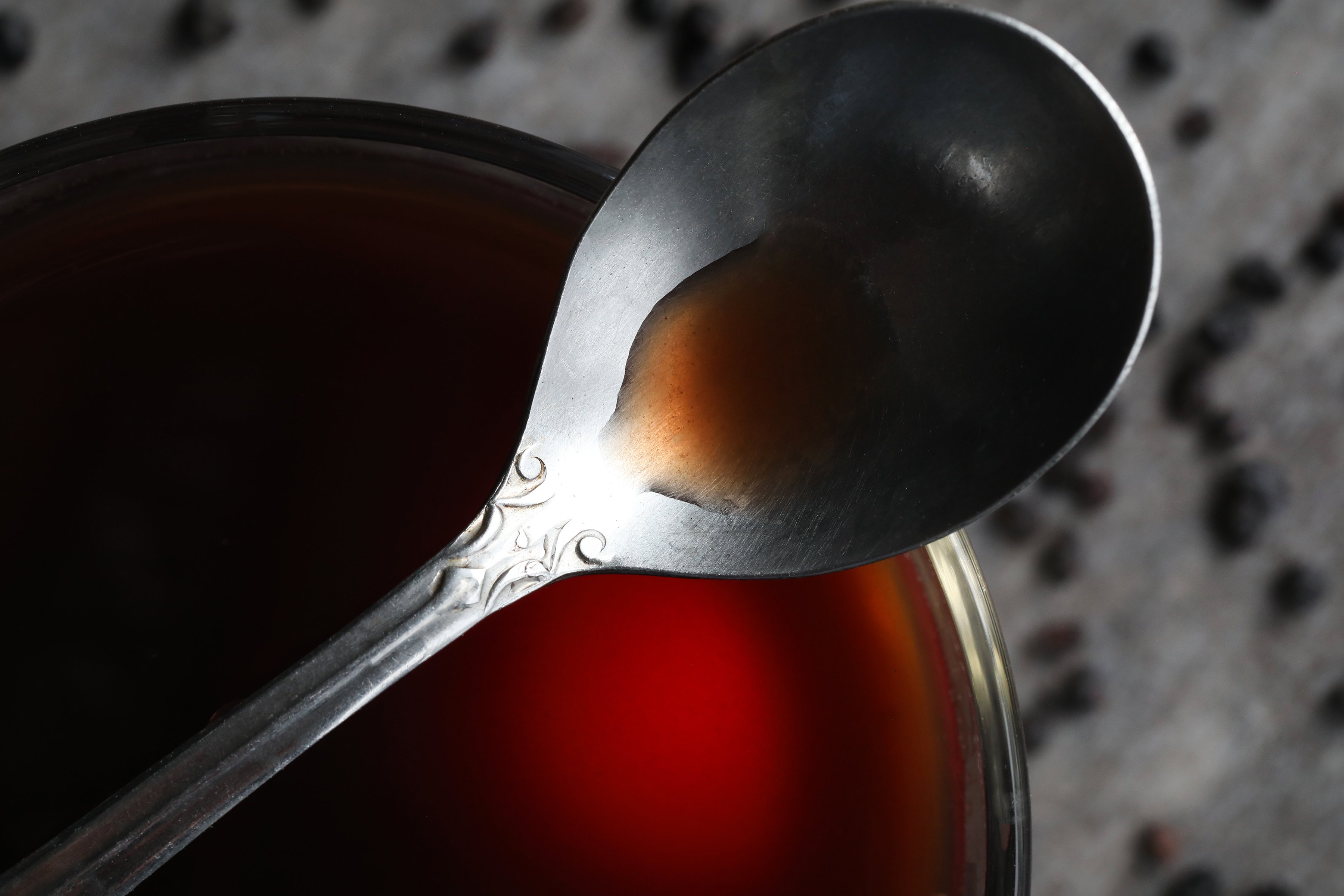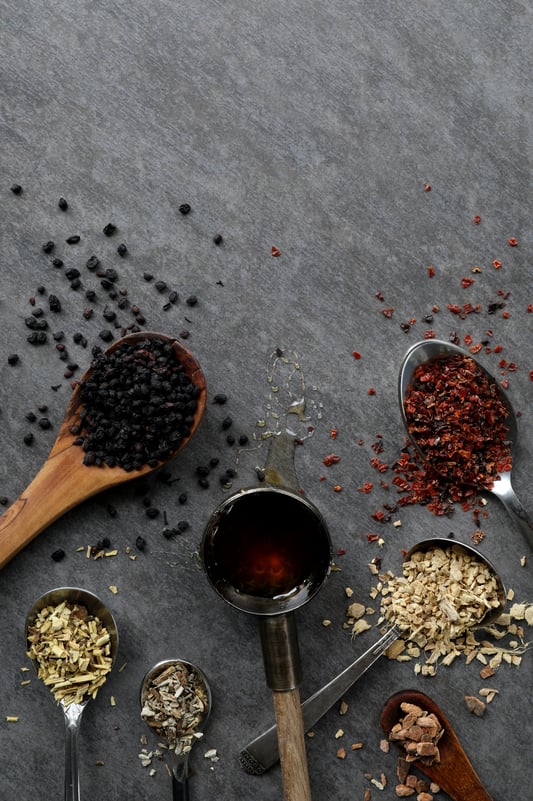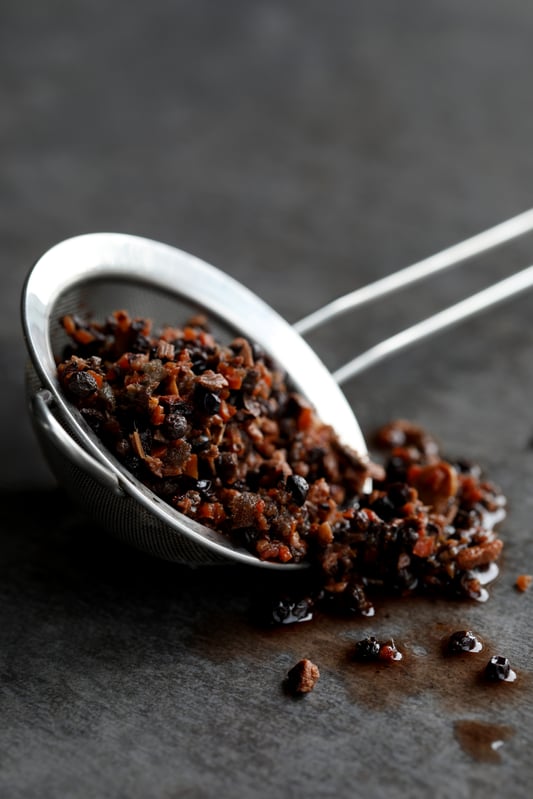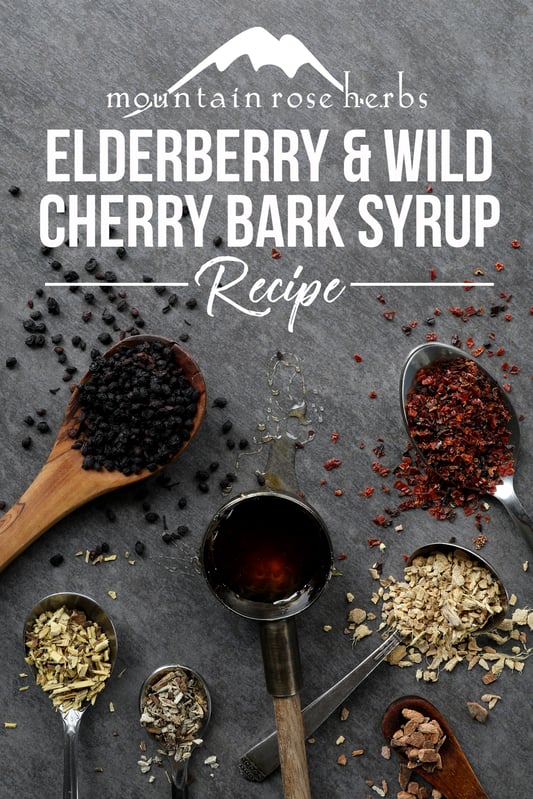When I was growing up in the mountains, my father gave me two “winter tips” that were passed down to him from his parents and grandparents. First, keep a pot of water on the wood stove as a sort of rustic humidifier to moisten the dry air that happens in homes shut up tight against the winter cold. This helped avoid the dry mucous membranes and throats that would otherwise plague us. And second, keep a jar of raw, local honey in the cupboard at all times, as this beautiful gift from the bees does wonders to soothe an irritated throat. With the cold weather now upon us here in western Oregon, I’m reminded of that steaming pot of water, stoking the fire against chilly nights, and Papa handing me a spoonful of honey before I brushed my teeth for bed.
These days, I’ve traded in the pot on the wood stove for a much more effective humidifier when we need one. But I still keep honey on hand at all times, and I’ve discovered that there is more that I can add to help that honey do its job in soothing the dryness of a winter throat. Adding herbs and spices that support immune health and offer expectorant and adaptogenic qualities is a lot like plucking more than one string on a musical instrument—you get a richer, more complex experience and you come away more satiated.
One of my favorite discoveries in this process has been learning the wonders of making a honey-based herbal syrup. Syrups are an extremely effective way to enjoy the healthful properties of herbs—and they taste good, so it’s a win-win! This elderberry, echinacea, and wild cherry bark throat syrup recipe (courtesy of the sage Juliet Blankespoor of the Chestnut School of Herbal Medicine) offers a favorite combination of herbs and spices that support the immune system and assist in soothing irritation.
Elderberry, Echinacea & Wild Cherry Throat Syrup
Ingredients
- 3 Tbsp. organic elderberries
- 2 Tbsp. organic rosehips
- 2 Tbsp. organic wild cherry bark
- 2 Tbsp. organic Echinacea purpurea root
- 1 Tbsp. organic mullein leaf
- 1 Tbsp. organic licorice root
- 1 organic sweet cinnamon stick, broken into pieces
- 1 tsp. organic ginger root
- 1 pint raw, local honey
- Brandy (optional preservative)
Directions
- Mix herbs and spices together in a pot and combine with 1 quart of water.
- Allow to soak for 2 to 3 hours. You may reduce soaking time, if necessary.
- Heat at a low simmer until mixture has been reduced to approximately half its original volume (1 pint).
- Remove from heat and strain out herbs.
- Return strained liquid to pot. Add honey.
- Gently heat mixture over low heat, just until honey warms enough so that mixture can be thoroughly stirred together.
- Once mixed, remove from heat and allow to cool.
- Optional: To help preserve and extend shelf life, measure out a quantity of brandy that is 15 to 20% of the volume of the syrup. Stir into cooled syrup.
- Pour into clean bottles and store in refrigerator. Syrup will last for several weeks to several months.
Suggestions:
- I like to drink 1-2 teaspoons every hour or so throughout the day, or as much as needed to wrangle mild throat irritation.
- Even if you choose to leave out the optional brandy, this throat syrup is NOT intended for children under 1 year of age! Honey is not safe for babies.
Don’t Have Time to Make Your Own?
Try Our Handcrafted Osha Ultra Syrup!
You may also be interested in:














